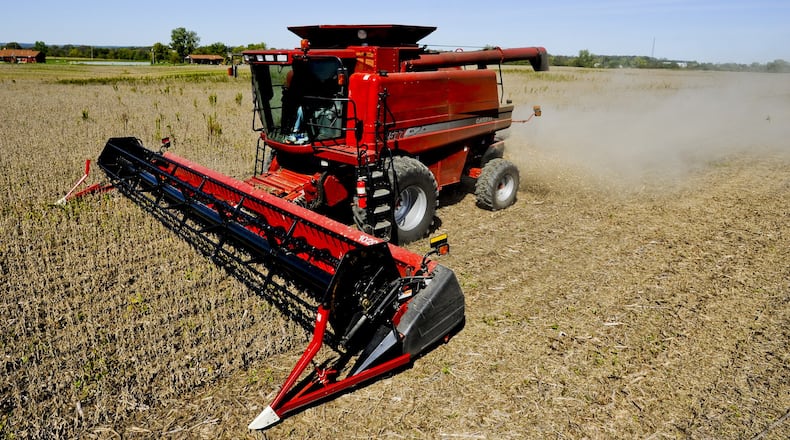Speaking to reporters, Perdue cautioned that the new tariffs unveiled in the past two days by the United States and China “are announcements” which “are not going to take effect” immediately.
“Our goal frankly is to get China to the table to discuss some of the unfair trading practices,” Perdue said.
“While people have to be obviously concerned about” the possibility of tariffs on soybeans, Perdue said “all I can do today is to tell you – which I think is a pretty good assurance – that the president of the United States has told the farmers of America that they will not be the causalities in this trade dispute.”
Perdue was in Ohio as the threat of a trade war between China and the United States has rattled the markets. In a sharply worded statement, the American Soybean Association said “it should surprise no one that China immediately retaliated against our most important exports, including soybeans.”
“We have been warning the administration and members of Congress that this would happen since the prospect for tariffs was raised,” the statement said.
Ohio farmers export about 60 percent of the soybeans they grow, meaning a trade war with China will hit them particularly hard.
“It has a potential to have a very negative impact on the soybean industry,” said Jennifer Coleman, a spokeswoman for the Ohio Soybean Council.
The Chinese announcement took place just one day after the Trump administration vowed to increase tariffs on as many as 1,300 Chinese products. The actions by the United States and China raise fears that a trade war is looming which would damage the economies of both countries.
The American Soybean Association said “soybean futures are already down nearly 40 cents a bushel as of this morning. At a projected 2018 crop of 4.3 billion bushels, soybean farmers lost $1.72 billion in value for our crop this morning alone. That’s real money lost for farmers, and it is entirely preventable.”
“We regret that the administration has been unable to counter China’s policies on intellectual property and information technology in a way that does not require the use of tariffs,” the statement said.
Sen. Sherrod Brown, D-Ohio, who has supported a tougher trade policy against China, said “China cheats - that’s what these tariffs are all about. So it’s no surprise they’re playing dirty when we try to enforce the rules and we need to support industries that are hurt, including Ohio soybean farmers.
“But we can’t be bullied out of standing up for American jobs by China’s threats,” Brown said “We should use these tariffs to force China to the negotiating table and secure changes that benefit all U.S. industries.”
Joe Cornely, senior director of communications for the Ohio Farm Bureau Federation, said one of every two rows of soybeans in the state gets exported “and a large share goes to China.”
“It’s not like we didn’t see this coming,” he said. “Every time there is a trade dispute, the first place they go for retaliation against the United States is agriculture. It happens literally every time, and that’s understandable because that’s the one place that they know will hurt.”
China previously slapped tariffs on U.S. pork, which will also hurt. The U.S. produces 22 percent of China’s pork market. With prices on U.S. imports of pork escalating, Cornely predicts other countries will be happy to take the United States’ share. “Other countries will probably be more than happy to ramp up their pork production,” he said.
The impact, he said, will be felt throughout rural Ohio.
“A hog farmer may be losing a lot of money , but there will be ripple effects as well,” he said. “The local Ford dealer will not sell as many pickup trucks. The grocery will not sell as much food. People won’t go to as many movies. Because agriculture is such a driver of local economies in rural areas, this hurts more than just farm families.”
(Jack Torry of the Washington Bureau contributed to this story. Hallerman reported from Lima.)

